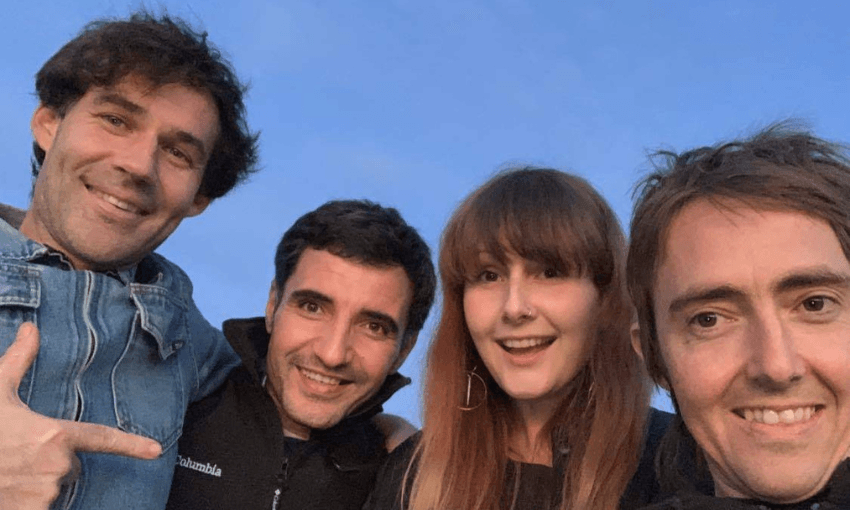Christel Yardley/Stuff
Kia ora e hoa, (Hello, friend) shows the word e as “the particle of address”.
In the ongoing consideration of “ngā kupu iti” – “little words” or particles – the last column finished with examples of the use of e as “the particle of address”: Kia ora / e Hone. (“Hello, John”) and E noho. (“Have a seat.”).
In both contexts – that is, whether preceding a noun, as in the first example, or a verb (noho meaning “to sit” or “stay”) this e is used only before words of no more than two short vowels or one long vowel. Thus: E tū. (“Stand up.”) and Kia ora / e hoa. (“Hello, friend) but: Kōrero mai. (“Talk to me.”). Kia ora / tamariki mā. (“Hello, children.”).
There may sometimes be a seeming translation of this word in the colloquial English “Hey!”: E Hone / haere mai. (“Hey, John, come on over.”). It’s almost certainly preferable, though, not to insist upon a translation in this manner, but to focus solely on the function of the word in te reo.
When this e precedes a verb, there is no parallel in English, and the two uses (preceding noun or verb) may be regarded as simply different functions of the same word.
READ MORE:
* Ten key words to unlock understanding of Māori verbs
* Learning phrases key to te reo fluency
* It’s all about the base words in te reo
There are, however, particles of the same spelling – e – which must be recognised as quite separate words. One of these is another preposition – with the difference that in this case there is an English parallel.
In passive sentences, this e introduces the “agent” (the agent responsible for something occurring) and thus serves as the equivalent of “by”: Ka whakakitea mai / e ia / ki ahau / he awa waiora. (“Shown / by him / to me / a river of the water of life.”).
This use of e occurs frequently because the passive construction is used more often in te reo Māori than in English. (For instance, the usual English version of the sentence above is active rather than passive in construction: “He showed me a river …”)
Quite distinct, again, is the use of e as verb particle, preceding a verb base. In the scheme of the verb in the Williams dictionary, when the verb base is followed by ana the tense is called “Imperfect (continuous) Past, Present or Future”: E karanga ana / ia. (“She or he was, is, or will be calling.”)
Without ana following, the tense is “Indefinite: Future”: E karanga / ia. (“He or she will call.”). In the negative form of such a sentence This e occurs twice: E kore / ia / e karanga. (“She or he will not call.”). Yes – plenty of work for one little word!




















Discussion about this post